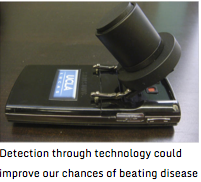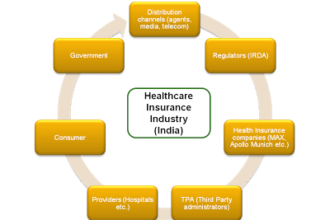A barrage of mobile health apps has descended upon the public in recent years. They come from health insurance companies, the telecom industry, the Department of Veteran Affairs. Seems like anyone who’s anyone is involved in designing those apps and getting them out there.
But one powerful group has been notably behind. Where, we might ask, are the drug companies?
We’re not the only ones to notice that they seem a little, mmm, dilatory on the mobile app front.
A barrage of mobile health apps has descended upon the public in recent years. They come from health insurance companies, the telecom industry, the Department of Veteran Affairs. Seems like anyone who’s anyone is involved in designing those apps and getting them out there.
But one powerful group has been notably behind. Where, we might ask, are the drug companies?
We’re not the only ones to notice that they seem a little, mmm, dilatory on the mobile app front.
Forbes Magazine points out that. . .”despite the fact that pharma can be a natural partner for health technology companies, it has been noticeably behind other industries. . .”
In the 2012 KPMG Pharmaceutical Outlook Survey, conducted in May 2012, executives were asked about how their company plans to use digital/social/mobile technologies over the next year. There was some interest–but the percentages were nowhere near as high as we would expect. 36% indicated that they planned to use such technologies to gain customer insights, 31% for customer facing applications, and 29% for recruiting and brand promotion.
The numbers aren’t large–but they do indicate a developing interest. New apps from Pharma are arriving steadily–but what are they and are they valuable contributions?
Michael Spitz, Managing Director of the Healthcare and LifeSciences division of ZEMOG, writes in his article with the telling title, “mHealth Monthly Mashup: release 12.0 – pharma dips its toes into mobile health with broad array of apps” that the envelopment is slower–but is useful and relevant.
He writes, “Amid the plethora of mobile health apps that make the news and have been peer-reviewed are far fewer yet equally significant releases from healthcare and pharma companies.”
Interesting–but a further question remains. Without good PR promotion, which seems to be lacking, how do we even know what’s out there?
So Spitz points us in the direction of POCKET.MD.
POCKET.MD saves a researcher on this topic a lot of fancy footwork. Advertising itself as “the world’s first and only online service focused exclusively on providing the most comprehensive directory of mobile applications created by pharmaceutical, biotech, and medical device companies,” it conveniently lists the apps by drug company–and a quick perusal of some of the names in big Pharma shows you who’s on the ball–and who’s lagging behind.
Click ‘Pfizer,’ top-grossing drug company of 2011, and you’ll find more than you would have imagined. There’s pfusion, for hemophiliacs, providing a way to record infusions and bleeds, and Plan Q, “an educational app to support participants of the Smoking Cessation program.”
I was particularly tickled by their Robitussin Relief Finder, which touts its usefulness as follows (although I find the exact value of its contribution somewhat debatable, since I always know what I’m getting–the store brand): “You don’t have to wait to find the right relief…now you can take our Robitussin® Relief Finder app with you everywhere you go. Just select your cough, cold or flu symptoms and the app finds the right product for you.”
I give them points for originality.
In contrast, long-term rival Eli Lilly had many fewer–and poorer–offerings (well, 3, to be exact), perhaps highlighted by RateMyDay which lets children with ADHD and their parents rate their symptoms at various times during the day. They seem to have been napping during the era of the mobile health app.
In between Lilly and Pfizer, in terms of financial success in 2011, Bristol Myers Squibb also had somewhat of a disappointing show on the mobile app front. With 5 offerings total, 2 were not in English [I left those for more highly educated reviewers], although 2 of the other 3 showed promise.
The CML Scoring Tool, for Chronic Myeloid Leukemia, utilizes both risk progression scoring systems currently in use to classify patients into high, intermediate or low-risk groups. The second, the STRIVE ACS Toolkit, seemed more a work in progress, with some of the tools on the app that are utilized as part of the STRIVE, or Strategies and Therapies for Reducing Ischemic and Vascular Events, program. I
Some experts in mHealth are unimpressed by such offerings. Writes Dave Chase, CEO of patient portal start-up Avado,
“[The drug companies] are doing the equivalent of providing polite applause from the stands and giving the gladiators (aka startups) some modest rewards for their efforts. When I am asked for my advice by pharma execs regarding how to drive change and innovation, my primary piece of advice is to get out of the stands and onto the playing field.”
Given that the mobile health market is expected to reach revenues of $392 million by 2015, it seems drug-makers might be sorry if they don’t charge the playing field more aggressively.









